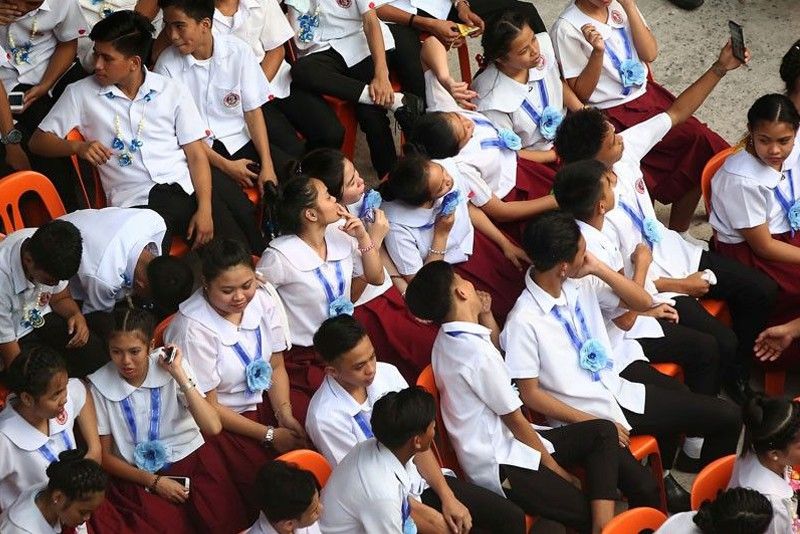Companies still hesitant to hire K-12 graduates

MANILA, Philippines — Most local companies are still hesitant to hire K-12 graduates, according to the top executive of the Philippine Institute of Corporate Directors (ICD).
Speaking during closing plenary of the 2019 Annual Public Policy Conference led by the Philippine Institute of Development Studies, ICD president Alfredo Pascual said businesses want to see first a proof of concept from schools to support claims that their graduates are employable.
This year’s conference focused on the challenges faced by the country amid the so-called new globalization characterized by the rapid advancement of digital technology and trade conflicts and worldwide economic restructuring .
The senior high school program intends to make all graduates become productive and employable.
“I think our schools have to show a proof of concept. In concept, K-12 is supposed to produce employable graduates. Industry people have yet to see the proof of concept,” Pascual said.
According to Pascual, efforts are underway on the part of employers to revise job descriptions, which originally requires college graduates for less specialized jobs, to accommodate senior high school graduates. But according to Pascual, take up has been minimal because many senior high school graduates remain unqualified.
“I was campaigning for this with the Philippine Chamber of Commerce and Industry and other friends in industry to start revising their job descriptions so that jobs that do not require a college degree can specifically say high school graduates to senior year. It’s slow uptake because of their experience with high school graduates,” Pascual said.
Pascual said that up to now, only high schools that have more resources are able to produce graduates that are more competent. But these students eventually go to college rather than immediately seek employment.
“The more expensive high schools train their students very well and they eventually go to college. These will be the ones who will not seek employment after high school. The ones who will seek employment are those coming from less endowed schools and they are not planning to go to college because of financial problems and other matters, so their employment is difficult under present situation,” he said.
The enactment of the Enhanced Basic Education Act of 2013 added two years to basic education. One of the rationales offered by proponents of the law is that senior high school graduates can work or engage in entrepreneurial activities if they choose to do so.
Previous papers by the PIDS have expressed concerns about the implementation of the K-12 curriculum.
In a 2018 discussion paper titled “Senior High School and the Labor Market,” the state-run think tank said most senior high school students under the K-12 program are not confident they will be able to get a job after graduating from basic education despite the goal of the program to produce graduates who can be immediately employed.
Focus group discussions conducted for the study showed three quarters of grade 12 students still plan to proceed to higher education. This proportion was the same even for those pursuing the technical-vocational-livelihood (TVL) track.
Even for those who passed the National Certifications assessments, most senior high school students believe companies would still prefer to hire college graduates.
It turns out their fears were not unfounded as companies feel senior high school graduates are not prepared for professional work.
To gauge the apprehension of employers, PIDS conducted key informant interviews (KIIs) with human resource managers in 26 firms in the National Capital Region (NCR), Calabarzon, and Cebu. These firms are engaged in manufacturing, agribusiness, and local government units.
The interviews showed that these companies do not have in-depth knowledge of the senior high school program nor the knowledge and skills acquired by the graduates. They are also uncertain if their skills are adequate and appropriate to the current needs of the industry.
At present, the type of jobs available for senior high school graduates are mostly entry level positions requiring middle level skills such as clerical support staff, crafts and trade workers, machine operators and sales and services workers.
But many employers offer elementary occupations that only require completion of primary education and skills below the middle level skills.
Companies also raised the issue of worker retention as previous experience of hiring senior high school graduates showed their tendencies to work only for a short period of time either because they will proceed to college or they just wanted to gain experience and hope to transfer to higher paying companies.
- Latest




























